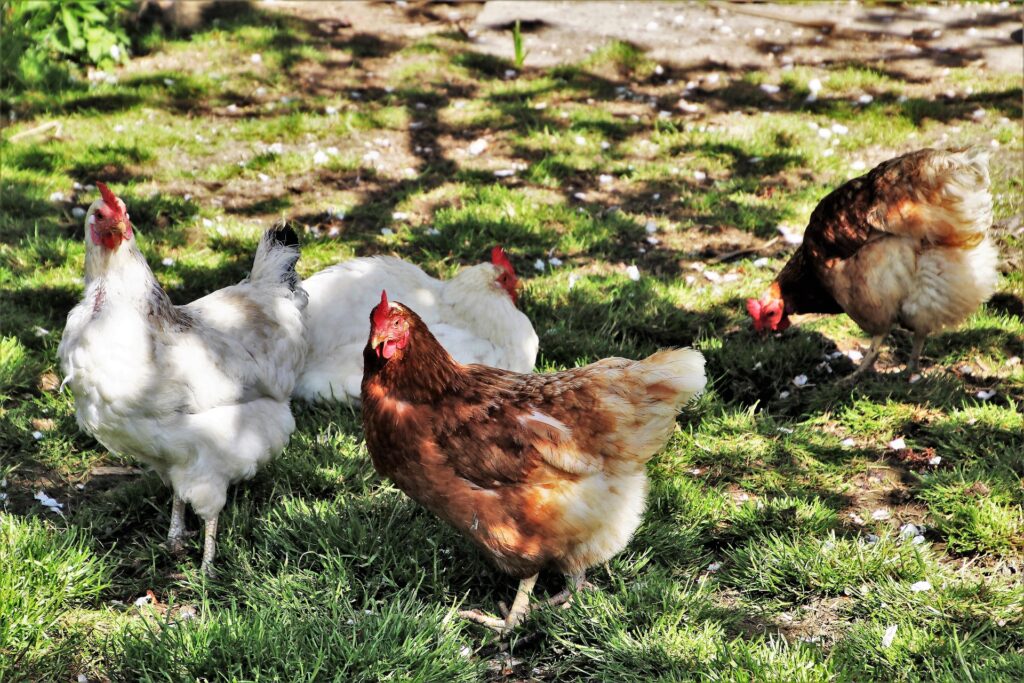
Backyard hens are becoming increasingly popular in cities and suburbs—and it’s not hard to see why. From fresh eggs to quieter, greener neighborhoods, chickens offer surprising advantages that many people don’t expect. If your community is considering whether to allow backyard hens, here’s a friendly, easy-to-read look at the pros (and a few cons) of welcoming these feathered neighbors.
The Pros of Backyard Hens
Fresh, Healthy Eggs Right at Home: Nothing compares to gathering your own eggs for breakfast. Backyard hens lay fresh, flavorful, nutrient-rich eggs, often with brighter yolks and better taste than many store-bought options. You also know exactly how the hens were raised—no mystery conditions involved.
Natural Pest Control: Chickens love bugs. Mosquitoes, ticks, beetles, and even garden pests become free chicken snacks, helping reduce unwanted insects around your yard. It’s an eco-friendly way to cut back on pests without chemicals.
Great for Gardens: Backyard hens produce compost gold. Their manure, when properly aged, becomes one of the richest natural fertilizers available. Your garden will thrive, and your plants will thank you.
Educational for Kids and Families: Chickens offer hands-on learning: responsibility, biology, food systems, and even compassion. Families often find hens become gentle, entertaining pets with distinct personalities.
Quiet and Low-Maintenance: Contrary to the rooster stereotype, hens are actually very quiet—quieter than dogs, leaf blowers, or even lawn mowers. They’re also relatively easy to care for with just a few minutes of daily maintenance.
Supports Sustainable Living: Raising hens aligns beautifully with a more sustainable lifestyle: Reduce food waste by giving scraps to hens. Reduce your carbon footprint by producing food at home. Reduce reliance on industrial farming. It’s a small but meaningful step toward greener living.
Strengthens Community: Backyard hens often spark conversations and connections with neighbors—especially when you share extra eggs! Communities that allow hens tend to see increased engagement and local food awareness.
The Cons (And Why They’re Manageable)
Even with all their benefits, hens do require thoughtful planning. Here are the main concerns—plus why they rarely become real issues when proper rules are in place:
Potential Odor: Yes, chickens can produce smells—but only if coops are neglected. With basic cleaning and proper coop design, odor is minimal and often less noticeable than a dog run.
Noise Concerns: Hens cluck, but their noise is mild—usually no louder than normal backyard conversation. Noise complaints almost always involve roosters, which many communities simply don’t allow.
Responsibility: Hens need daily care, like any pet. However, the workload is small, and many owners find the routine calming and enjoyable.
The Bottom Line: Allowing backyard hens brings meaningful benefits—healthier food, greener habits, happier gardens, and stronger communities. With simple, common-sense guidelines, the downsides are easy to manage. For many families, hens become more than food producers; they’re companions, helpers, and a gateway to more sustainable living. Backyard hens aren’t just a trend—they’re a smart, community-friendly choice.
If you’re interested in having the Century Farm HOA rules amended, Please call 208-369-2410 and we’ll share upcoming meeting dates and next steps.
